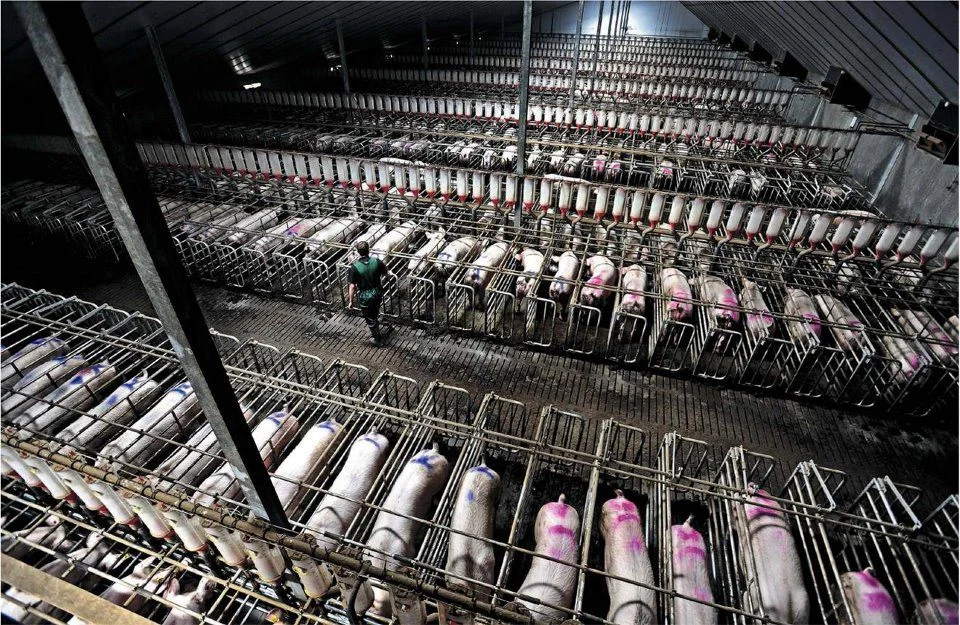Animal Welfare
Imagine a farm in your head... What likely comes to mind is a pastoral scene with a big old barn, a barnyard with chickens, possibly some goats or pigs, green acres of crops all around, and cattle grazing off in the distance. For hundreds of years, this image was not imaginary, it was a typical family farm. This was the model farm because it had all the elements a farm needed to work, to grow good food and raise healthy animals for meat. Farmers have always known that a sustainable farm involved the natural cooperation between animals, farmland, crops and the environment, managed and nurtured by the people who worked on the farm. If done correctly, nature’s amazing synchronicity did it's magic.
They Deserve Better
Unfortunately, over recent decades, farm animals have become increasingly separated from their natural environment on the land. In the United States today, most farm animals are raised in confinement, rarely seeing the sun, denied fresh air and will never feel a breeze coming across the land. They are denied exercise or allowed to engage in the most basic and natural behavior, including nurturing their young. Today, most farm animals are raised on industrial/commodity farms, commonly know as “factory farms”
The goal of the industrial farm is maximum production from animals. Factory farms are large, profit driven companies that view animals as units of production, rather than living creatures. Animals are raised to grow faster and larger in the most efficient way possible, regardless of the stress and suffering they experience. These conditions not only shorten their lifespan, but make their lives miserable and often painful.
Why should we care?
Because concentrating animals not only has severe implications for animal welfare, it can be unhealthy for those who eat the meat from these animals, it creates unhealthy conditions for people working in factory farms and, it can be disastrous on the environment. Many modern day concerns over our health as it pertains to the safety of meat, are a result of confinement farming. The nature of the factory farm has created unhealthy conditions that breeds rampant viruses that would not exist if animals were raised humanely and allowed to live naturally.
Most people agree that animals should be given minimum standards of cleanliness and space, and they should not suffer needlessly. The degree of comfort and freedom that farm animals deserve is debatable. Nevertheless, confining farm animals for maximum efficiency exposes them to high levels of toxins from decomposing manure and can lead to perfect conditions for diseases to spread. That is why most factory farmed animals are given a constant low dose of antibiotics, which are contributing to the development of antibiotic-resistant bacteria in animals and humans. They are fed an unnatural diet designed to increase the speed of growth, which leads to a wide variety of health problems and results in a high percentage of animals going to slaughter sick. Factory farmed animals, and the food they eat, are routinely treated with pesticides and other unhealthy additives. They are routinely given hormones for the sole purpose of increasing productivity. The reality is that the basic structure of industrial farms is at odds with the overall well-being of the animals they raise. In the end, it is also at odds with the well-being of the consumers who eat meat from these animals. To what extent, is debatable.

